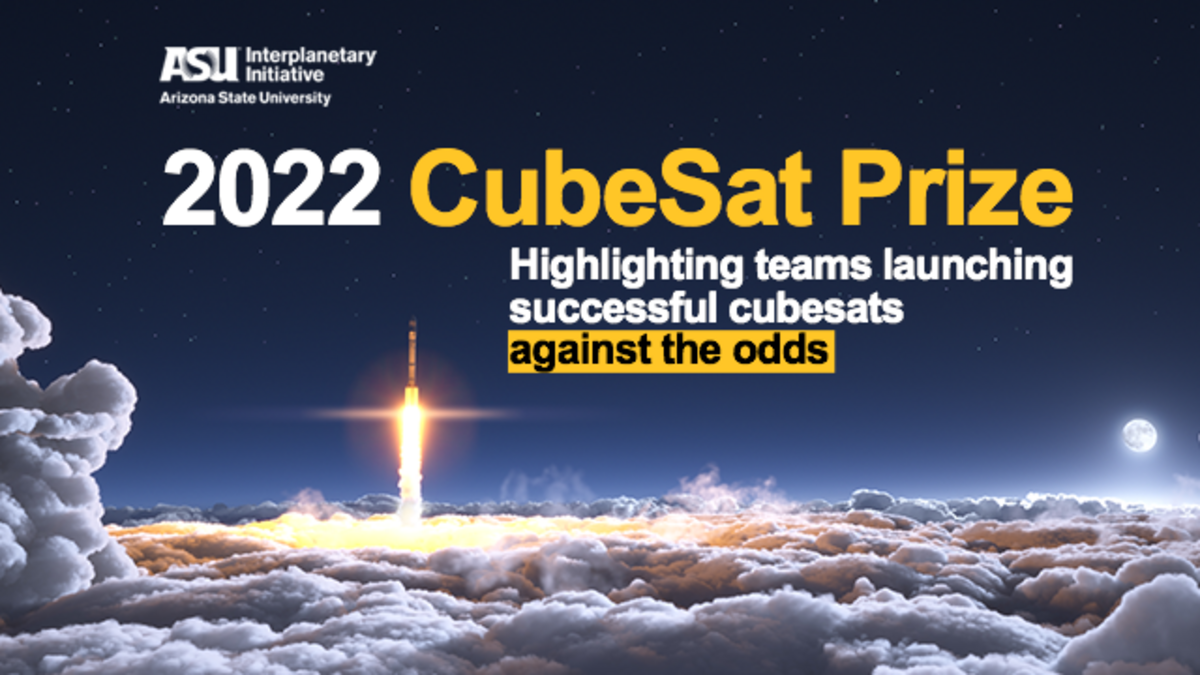ASU's Interplanetary Initiative now accepting nominations for CubeSat Delivery Prize

Arizona State University's Interplanetary Initiative is now accepting nominations for its 2022 CubeSat Delivery Prize. The prize will recognize an outstanding achievement by a novice team launching a CubeSat in order to encourage new groups or underrepresented people or schools to engage in space education and promote CubeSat education.
Eligible teams may come from a school or country that does not have a track record of successful missions, have overcome adversity, have launched a mission that creates a compelling educational opportunity or have engaged a unique coalition of collaborators.
Teams may self-nominate or nominate another team. Learn more and share your story here.
Nominees will be reviewed and scored by an expert evaluation panel. The winner will be announced in May 2022.
The winning team will receive a cash prize of $7,500 and its story will be shared with the world through ASU’s communications channels, the Interplanetary Initiative’s social media channels and newsletter, reaching thousands of people, and a guest spot on the "Mission: Interplanetary" podcast.
“Delivering a working spacecraft for launch is a huge victory for any non-professional team. This award shows our appreciation for the kind of effort this represents,” said Danny Jacobs, associate director of the Interplanetary Initiative.
The award was made possible thanks to the generosity of the Shojaee Foundation.
The Interplanetary Initiative at Arizona State University engages broadly across disciplines and sectors to create an interplanetary future built upon cooperative and inclusive new structures, systems and perspectives. We study and solve the big social and systems questions that pave our future in space. The Interplanetary Initiative most recently announced a collaboration with Blue Origin and other space leaders to build Orbital Reef, a premier, mixed-use space station in low Earth orbit designed to open multiple new markets in space.
More Science and technology

ASU-led space telescope is ready to fly
The Star Planet Activity Research CubeSat, or SPARCS, a small space telescope that will monitor the flares and sunspot activity…

ASU at the heart of the state's revitalized microelectronics industry
A stronger local economy, more reliable technology, and a future where our computers and devices do the impossible: that’s the…

Breakthrough copper alloy achieves unprecedented high-temperature performance
A team of researchers from Arizona State University, the U.S. Army Research Laboratory, Lehigh University and Louisiana State…

